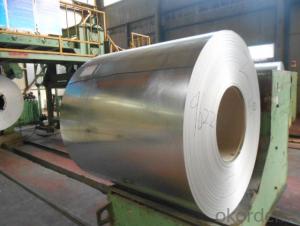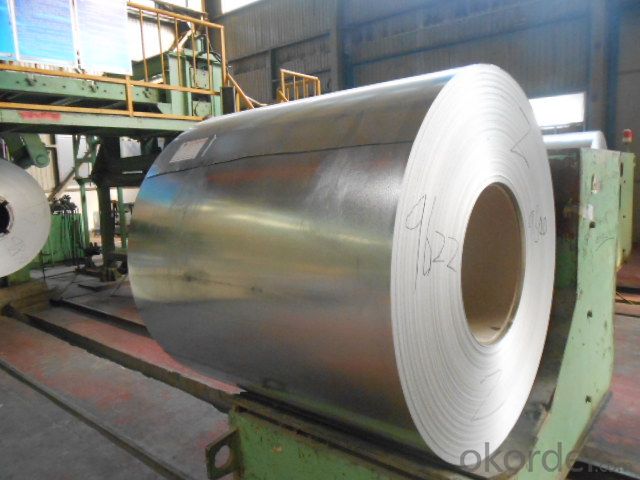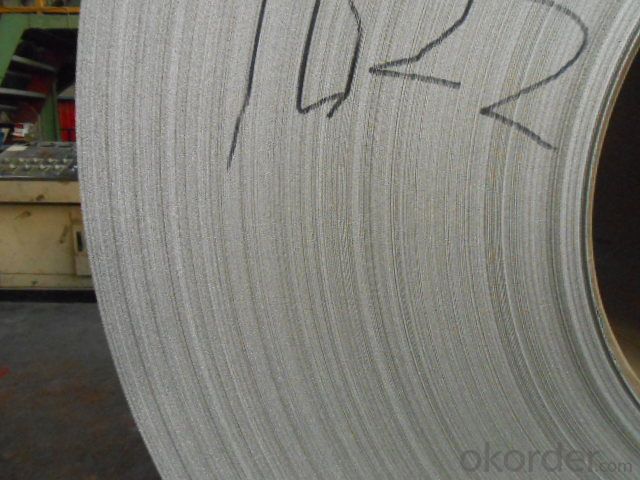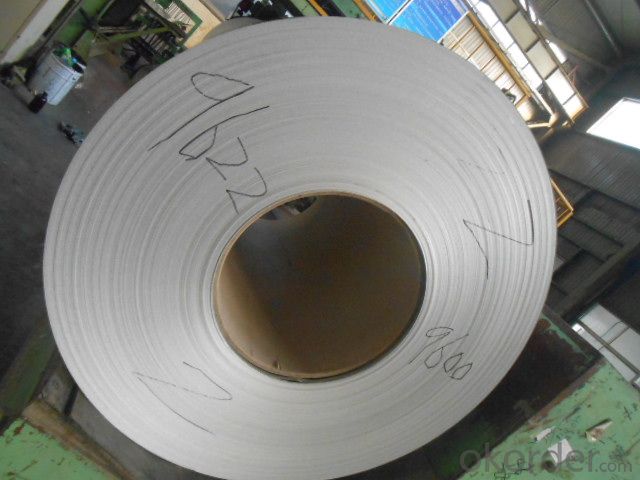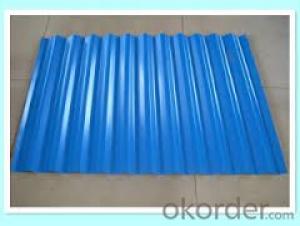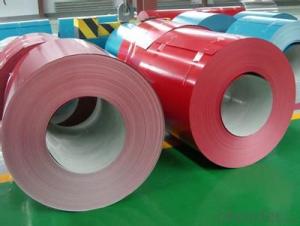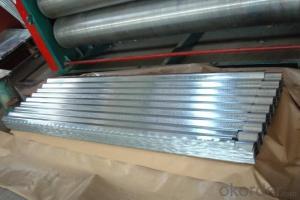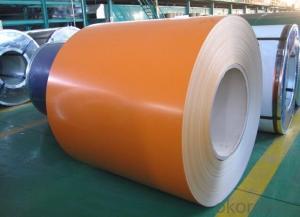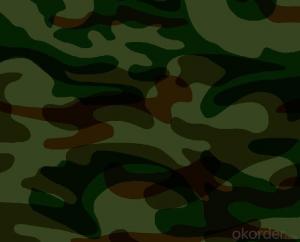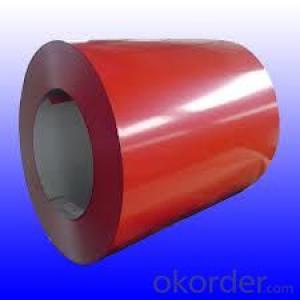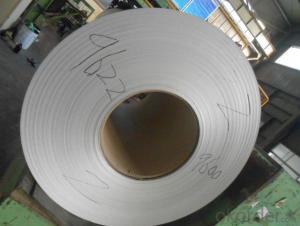Galvanized/Aluzinc Steel Coil with Best Quality in China
- Loading Port:
- Shanghai
- Payment Terms:
- TT OR LC
- Min Order Qty:
- 100 m.t.
- Supply Capability:
- 10000 m.t./month
OKorder Service Pledge
OKorder Financial Service
You Might Also Like
Hot-dip Zinc Coating Steel Building Roof Walls
1.Structure of Hot-Dip Galvanized Steel Sheet Description:
Hot-dip galvanized steel coils are available with a pure zinc coating through the hot-dip galvanizing process. It offers the economy, strength and formability of steel combined with the corrosion resistance of zinc. The hot-dip process is the process by which steel gets coated in layers of zinc to protect against rust. It is especially useful for countless outdoor and industrial applications. Production of cold formed corrugated sheets and profiles for roofing, cladding, decking, tiles, sandwich walls, rainwater protective systems, air conditioning duct as well as electrical appliances and engineering.
2.Main Features of the Hot-Dip Galvanized Steel Sheet:
• Excellent process capability
• Smooth and flat surface
• Workability, durability
• Excellent anticorrosive property
• High strength
• Good formability
• Good visual effect
3.Hot-Dip Galvanized Steel Sheet Images:
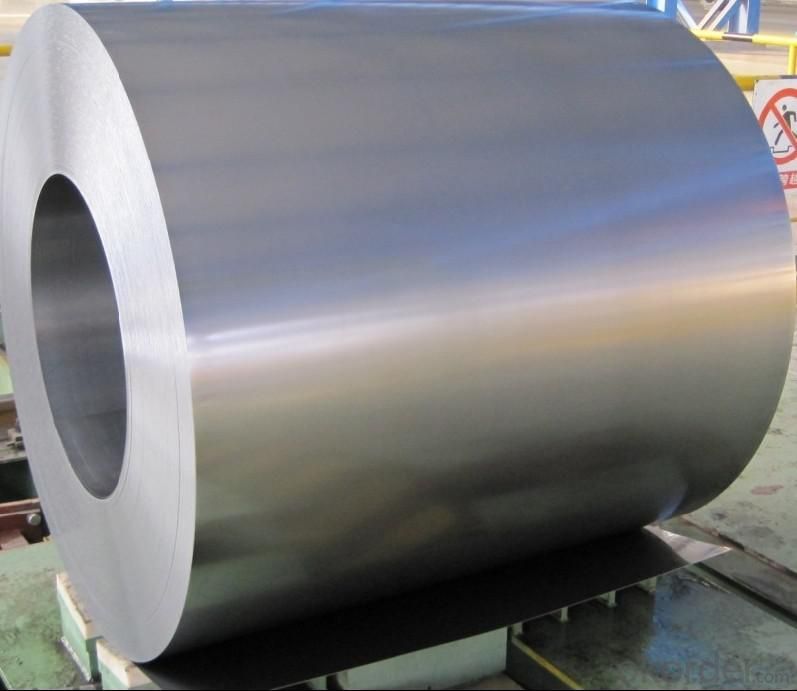
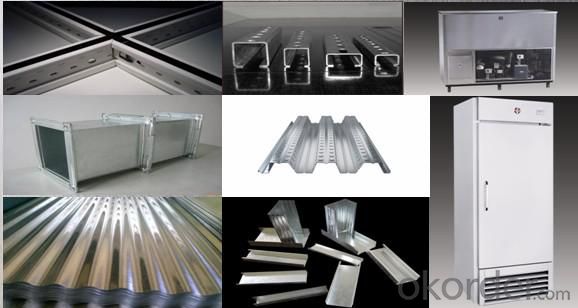
4.Hot-Dip Galvanized Steel Sheet Specification:
Standard: ASTM, JIS,EN
Grade: CS, DX51D+Z,SGCC, SS 230~550,S220GD+Z~S550GD+Z, SGC340~SGC570
Thickness: 0.1mm~5mm
Width: max 2000mm
Coil weight:3-12 MT
Coil ID:508/610mm
Surface structure: zero spangle, regular spangle or minimum spangle
Surface treatment: Chromate treatment, Oiled/dry, skinpassed/non-skinpassed
Packing: Standard seaworthy export package
Technology test results:

5.FAQ of Hot-Dip Galvanized Steel Sheet:
We have organized several common questions for our clients,may help you sincerely:
1.How about your company?
A world class manufacturer & supplier of castings forging in carbon steel and alloy steel,is one of the large-scale professional investment casting production bases in China,consisting of both casting foundry forging and machining factory. Annually more than 8000 tons Precision casting and forging parts are exported to markets in Europe,America and Japan. OEM casting and forging service available according to customer’s requirements.
2.How to guarantee the quality of the products?
We have established the international advanced quality management system,every link from raw material to final product we have strict quality test;We resolutely put an end to unqualified products flowing into the market. At the same time, we will provide necessary follow-up service assurance.
3. How long can we receive the product after purchase?
Usually within thirty working days after receiving buyer’s advance payment or LC. We will arrange the factory manufacturing as soon as possible. The cargo readiness usually takes 15-30 days, but the shipment will depend on the vessel situation.
- Q: What are the challenges in the production of steel coils?
- The production process of steel coils encounters several obstacles. Firstly, ensuring consistent quality throughout the process is a major challenge. It is necessary for steel coils to possess uniform thickness, width, and flatness. However, achieving this consistently can prove to be difficult due to variations in raw materials, equipment, and operating conditions. Another hurdle involves effectively managing the intense temperatures involved in the production process. Steel coils are formed by heating steel slabs or billets to extremely high temperatures and subsequently rolling them into coils. Maintaining the necessary temperatures and ensuring proper cooling can be a complex task, as any deviations can result in inconsistencies in the final product. Furthermore, the production of steel coils demands a significant amount of energy. The steel industry ranks among the largest energy consumers worldwide. The constant challenge lies in reducing energy consumption while maintaining production efficiency. To tackle this challenge, the implementation of energy-efficient technologies and process optimization is imperative. Moreover, the production of steel coils generates a substantial amount of waste and emissions. Steel manufacturing involves various chemical reactions that release pollutants such as carbon dioxide, sulfur dioxide, and particulate matter. Meeting environmental regulations and minimizing these emissions are significant challenges for the industry. Additionally, the production of steel coils often involves large quantities, necessitating efficient logistics and transportation systems. Ensuring timely delivery and minimizing damage during transportation can be challenging due to the weight and size of the coils. Lastly, the steel industry confronts market challenges, including fluctuating prices of raw materials, competition from alternative materials, and global economic conditions. Adapting to market demands and maintaining competitiveness are vital for the sustainable production of steel coils. Overall, the challenges in steel coil production encompass maintaining consistent quality, managing high temperatures, reducing energy consumption and emissions, optimizing logistics and transportation, and adapting to market dynamics. Addressing these challenges requires continuous innovation, technological advancements, and a focus on sustainability.
- Q: Can steel coils be customized in terms of size and shape?
- Yes, steel coils can be customized in terms of size and shape. They can be manufactured to specific dimensions and configurations according to the requirements and specifications of the customer.
- Q: How are steel coils used in the production of roofing systems?
- Steel coils are used in the production of roofing systems in various ways. Firstly, the steel coils are unrolled and fed into a machine where they are cut to the desired length for the roofing panels. These coils are often made of galvanized steel, which is coated with a layer of zinc to protect against rust and corrosion. Once the coils are cut, they are then passed through a roll-forming machine. This machine shapes the steel into the required profile for the roofing panels. The shape of the panels can vary depending on the design and functionality of the roofing system. After the steel is formed, it may undergo further processes such as embossing or stamping to add texture or patterns to the panels. This helps to enhance the aesthetics of the roofing system and provide a unique look. The formed and processed steel panels are then coated with additional protective layers or finishes, such as paint or polymer coatings. These coatings further enhance the durability of the roofing system and provide resistance against weather elements, UV rays, and corrosion. The final step in the production of roofing systems involves the installation of the steel panels on the roof. The panels are typically fastened to the roof structure using screws or nails. The interlocking design of the panels ensures a secure and watertight installation, providing protection against leaks and moisture infiltration. Overall, steel coils play a crucial role in the production of roofing systems by providing a durable and long-lasting material that can withstand harsh environmental conditions. The versatility of steel allows for various design options and customization, making it a popular choice for roofing applications.
- Q: I live in Dubai. I want to make a damascus steel sword and have no idea where to get the steel or what sort of steel I should get.First to adress the access of my steel...I need to get some low carbon and high carbon steel for the Damascus....what sort of steel is recommended for this? Also where would I be able to get my hands on it (Internet options e.g websites or locations)THANKS
- Damascus Steel Swords For Sale
- Q: Is steel case ammo going to mess the gun up or is it just going to wear the parts out faster and if so how much faster? (I am not planning on reloading the rounds)
- Look at it this way, steel ammo is what about 20 cents per round if you buy it at a gun show by the box of 500. Brass ammo costs like 45 cents per round at my local Academy Sports Outdoors. Now, the life of an AK with military steel case ammo is 25,000 rounds.... lets assume you can get an extra 10,000 by using brass ammo. If you have saved all that money by buying steel cased ammunition, you could buy 3 replacement AK's with the money you saved by the time you wear one out. The AK was made to use steel cased ammunition. All Russian designed weaponry is designed for steel cased stuff, I have heard they actually function better with steel. Something to do with the hardness of the metal.
- Q: I know of the cheaper steel shot for waterfoul hunting, but there is more expensive shot available. Is it worth the money, how much more distance are we talking, and what do you like the best?(brand name)
- All buckshot I can think of at the moment is lead. Steel shot is used for waterfowl hunting because lead is illegal for that use. They don't want all that lead shot falling back in the water and causing lead contamination. There would be no reason to make steel buckshot, and it would be pretty ineffective. Steel is much less dense than lead. So a steel 00 pellet would weigh much less than a lead 00 pellet. So it would carry a lot less energy to a target. Buckshot is used for just that, Bucks. Well large game like deer, bear, and for self defense. In uses like that you need that extra energy. Lead shot is used for everything, except where lead shot is illegal, which is waterfowl hunting. Steel shot really isn't very popular anymore. Waterfowl shot just can't be lead. It doesn't have to be steel. They've come out with other stuff, like bismuth, that is a lot more dense than steel, but still not as dense as lead.
- Q: How are steel coils inspected for bendability?
- Steel coils are inspected for bendability through a combination of visual examination, mechanical testing, and dimensional analysis. Visual inspection involves identifying any visible defects such as cracks, dents, or surface irregularities that could affect the coil's bendability. Mechanical testing is conducted to measure the coil's resistance to bending and evaluate its flexibility. This includes performing bend tests to determine the coil's ability to withstand a specified degree of bending without breaking or cracking. Additionally, dimensional analysis is performed to ensure that the coil meets the required thickness, width, and length specifications, as these factors also impact its bendability.
- Q: How are steel coils used in the production of agricultural irrigation systems?
- Steel coils are used in the production of agricultural irrigation systems as they are often used to manufacture pipes and tubing. These coils are shaped and cut into specific lengths to create the necessary components for the irrigation systems. The steel material provides durability and strength to withstand the pressures and demands of distributing water in agricultural fields efficiently.
- Q: What are the dimensions of steel coils used in the furniture industry?
- The dimensions of steel coils used in the furniture industry can vary, but common sizes range from 0.5 to 3 millimeters in thickness and 100 to 2000 millimeters in width. The length can be customized based on specific furniture manufacturing requirements.
- Q: How are steel coils used in the production of steel framing systems?
- Steel coils are used in the production of steel framing systems as they are the primary raw material. These coils are unwound and fed into a roll forming machine, where they are shaped into the desired profiles and lengths. The steel framing systems, including studs, tracks, and joists, are then fabricated from these formed coils, providing structural support and stability to buildings and structures.
Send your message to us
Galvanized/Aluzinc Steel Coil with Best Quality in China
- Loading Port:
- Shanghai
- Payment Terms:
- TT OR LC
- Min Order Qty:
- 100 m.t.
- Supply Capability:
- 10000 m.t./month
OKorder Service Pledge
OKorder Financial Service
Similar products
Hot products
Hot Searches
Related keywords
